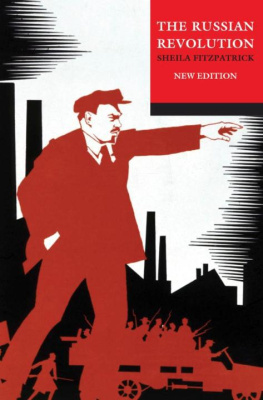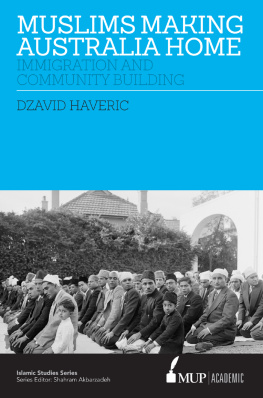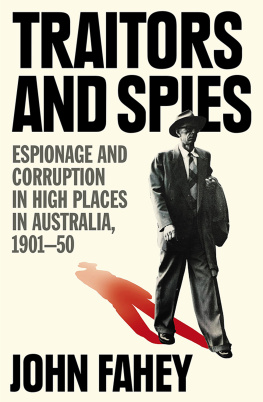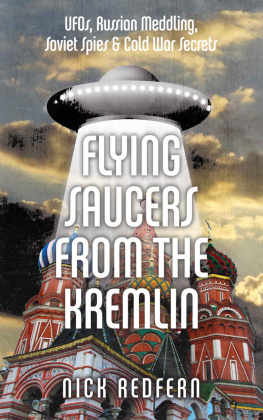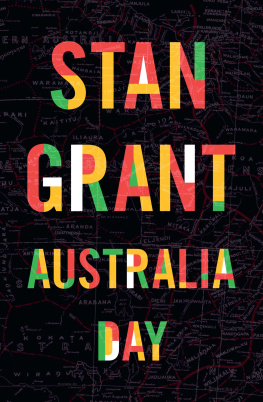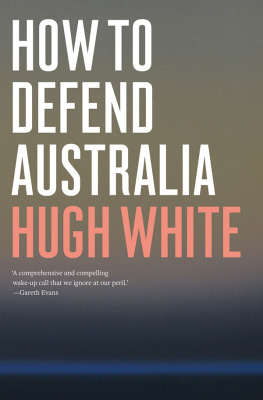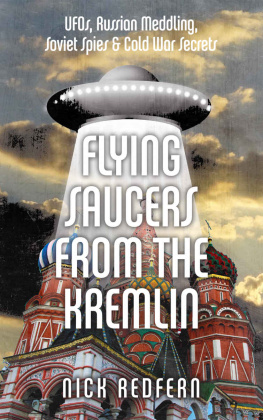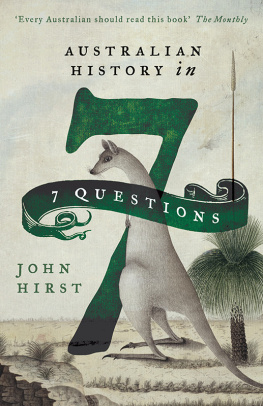Published by La Trobe University Press in conjunction with Black Inc.
Level 1, 221 Drummond Street
Carlton VIC 3053, Australia
www.blackincbooks.com
www.latrobeuniversitypress.com.au
La Trobe University plays an integral role in Australias public intellectual life, and is recognised globally for its research excellence and commitment to ideas and debate. La Trobe University Press publishes books of high intellectual quality, aimed at general readers. Titles range across the humanities and sciences, and are written by distinguished and innovative scholars. La Trobe University Press books are produced in conjunction with Black Inc., an independent Australian publishing house. The members of the LTUP Editorial Board are Vice-Chancellors Fellows Emeritus Professor Robert Manne and Dr Elizabeth Finkel, and Morry Schwartz and Chris Feik of Black Inc.
Copyright Sheila Fitzpatrick 2021
Sheila Fitzpatrick asserts her right to be known as the author of this work.
ALL RIGHTS RESERVED.
No part of this publication may be reproduced, stored in a retrieval system, or transmitted in any form by any means electronic, mechanical, photocopying, recording or otherwise without the prior consent of the publishers.
9781760641863 (paperback)
9781743821787 (ebook)
Cover design by Akiko Chan
Text design and typesetting by Tristan Main
ACKNOWLEDGEMENTS
Much of the research that went into this book was supported by two grants from the Australian Research Council: War and Displacement: From the Soviet Union to Australia in the Wake of the Second World War (DP130101215), with Mark Edele as co-chief investigator and Jayne Persian as research associate and project manager; and Displacement and Resettlement: Russian and Russian-Speaking Jewish Displaced Persons Arriving in Australia via the China Route in the Wake of the Second World War (DP160101528), with Ruth Balint and Jayne Persian as co-chief investigators, Justine Greenwood as research associate and project manager, and Mara Moustafine and David Wolff as partner investigators. I owe a great debt not only to the ARC but also to my collaborators on these projects, who provided invaluable friendly support as well as good advice and a willingness to be used as sounding-boards. I am also very grateful to the University of Sydneys history department for providing me with an academic home as I wrote this book and to the various colleagues who made helpful comments along the way. Justine Greenwood was my trusted interface and troubleshooter in university administration and ARC matters.
I learnt a great deal from my interviewees Marguerita Adam, Andrew Andersons, the late Natalie Baitch, the late Larry Bagg, the late Andrejs Bievskis and his wife, Anna, Alex Ilyin, Kristian Ireland, Anastasia Koshevsky, Galina Kuchina, Nathan Moshinsky, Sam Moshinsky, Gary and Marina Nash, Natasha Neal, Tamara Neal, George Nikolajuk, Alex Selenitsch, and Tatiana Torlina who helped me to understand the meaning of being a Russian migrant in Australia. Mara Moustafine and Elena Govor were an invaluable resource, generously sharing their unparalleled knowledge of the Russian community in Australia. My interviews in Victoria were facilitated by the generous hospitality which even extended to the use of a car of my cousin Peter Fitzpatrick and his wife Gay Baldwin in Melbourne; and the Nikolajuks made me warmly welcome on my visit to Beenak. I also benefited from conversations with Tamara Popowski, currently writing a masters thesis on her Russian DP family under my supervision at the University of Sydney.
For the provision of documents and help in locating materials, I thank Robert Bickers, Igor Casu, Mark Edele, Ekaterina Heath (who also did some interviewing for the ARC project), Katja Knyazeva, Marcus James, Caroline Piketty, Nicholas Pitt, Patricia Polyansky, Peter Rutland, Filip Slaveski, Karl Schlgel and Stephen Wheatcroft. Special thanks to Mara Moustafine for allowing me to draw on her personal library, including Vladimir Jiganovs rare Russians in Shanghai volume, and to Margaret and George Nikolajuk, who contacted me about Ivan Nikolajuks papers and invited me to their home in Beenak to read them. David Walker was an early counsellor on China research, and my University of Sydney colleagues David Brophy, Andres Rodriguez and Sophie Loy-Wilson also provided timely assistance and advice. The visit of our ARC grant team to Harbin and Shanghai in 2018 was facilitated by David Walker and Mara Moustafine, and Mara and her husband, Andrew Jakubowicz, were the best possible guides to those cities.
Joy Damousi was an essential interlocutor on questions relating to postwar immigration. On Australian topics and scholarly literature, I relied particularly on Ann Curthoys, Phillip Deery, Stuart Macintyre, Mark McKenna and Carolyn Rasmussen.
Along with my valued collaborators on the second ARC project, Ruth Balint and Jayne Persian, Ebony Nilsson my PhD student at the University of Sydney has been a constant source of information and level-headed, informed analysis. The three of them were core participants in Russians from China in Australia, a conference held at the University of Sydney on 78 November 2019, ably organised by Justine Greenwood, with help from Katja Heath. Papers were presented by me, Ruth Balint, Oleg Beyda, Elena Govor, Justine Greenwood, Katya Knyazeva, Mara Moustafine, Ebony Nilsson, Jayne Persian, Nicholas Pitt and David Wolff; and Mark Edele, Louise Edwards, Marcus James, Andrew Jakubowicz, Sophie Loy-Wilson, Larry Sitsky, Filip Slaveski and Kyle Wilson made valuable contributions in discussion.
A first draft of this manuscript was read and critiqued at a very helpful and productive workshop held at the University of Sydney on 13 December 2019 and attended by Ruth Balint, Elena Govor, Justine Greenwood, Ekaterina Heath, Mara Moustafine, Ebony Nilsson and Jayne Persian. Mara subsequently read revised versions of the introduction and chapters 3 and 5, while Ebony read the revised version of chapter 8. Margaret and Yura Nikolajuk read and provided useful comments on the introduction. The book is much the better for their help.
There are intellectual debts that go back before my return to Australia in 2012. I learnt a lot about postwar Russian migrs before I ever thought of working on them from Andrew Janco, who wrote a fine PhD dissertation, Displaced Persons in Europe, 19411945, under my supervision at the University of Chicago in 2012, and from Anna Marta Holian, on whose PhD committee I sat when she defended the 2005 dissertation that was the basis for her book, Between National Socialism and Soviet Communism: Displaced Persons in Postwar Germany (2011). Both scholars are often cited in this book. Yuri Slezkine, a friend since I supervised his PhD in Texas in the 1980s, and Eleonor Gilburd, who studied with me as an undergraduate at the University of Chicago before going on to do a PhD with Yuri at Berkeley, have long been my advisers on matters relating to the Russian diaspora.
My husband, Michael Danos, who died in 1999, was the person who first made the experiences of war and migration, with all their complexities, real to me in human terms. I tried to capture his experiences as a DP from Riga in postwar Germany in


